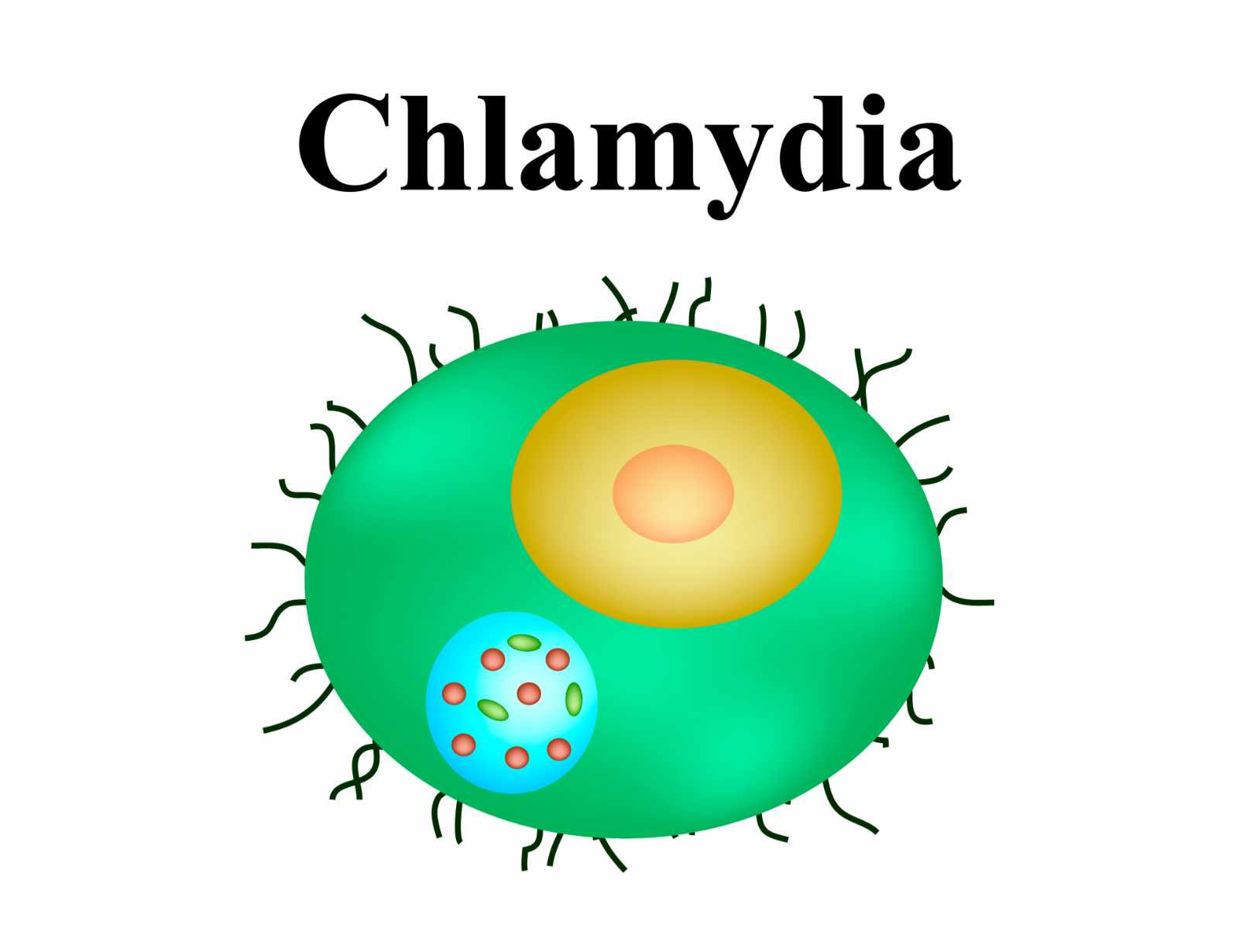Chlamydia Infection
Using advanced AI technology, ChatRx accurately diagnoses Chlamydia infection and prescribes medications when appropriate.
Overview
Chlamydia is a common sexually transmitted infection (STI) caused by the bacteria Chlamydia trachomatis. It is one of the most frequently reported infectious diseases, particularly affecting sexually active young adults. Chlamydia can lead to serious health complications if left untreated, but it is also relatively easy to diagnose and treat with appropriate antibiotics.
Dealing with Chlamydia infection? Use ChatRx to run through a quick symptom assessment!
AI-Powered Symptom Assessment Coming in Spring 2025!

What is Chlamydia?
- A common STI caused by the bacteria Chlamydia trachomatis
- One of the most frequently reported infectious diseases, particularly affecting sexually active young adults
- Can lead to serious health complications if left untreated, but is also relatively easy to diagnose and treat
Causes of Chlamydia
- Unprotected sexual contact with an infected partner
- Transmission through vaginal, anal, or oral sex
- Increased risk of infection with multiple sexual partners or a history of other STIs
Preventing Chlamydia
- Practice safe sex by using condoms during all sexual activity
- Get regularly tested for STIs, especially if you have multiple sexual partners
- Communicate openly with sexual partners about STI testing and prevention
Dealing with Chlamydia Infection?
AI-Powered Chlamydia Infection Treatment Coming This Spring!
Start Your Chlamydia Infection Assessment Now
Symptoms of Chlamydia
- Often asymptomatic, especially in women
- Burning or pain during urination
- Unusual vaginal or penile discharge
- Pelvic or abdominal pain in women
- Testicular pain or swelling in men
Treating Chlamydia
- Antibiotics, such as azithromycin or doxycycline, prescribed by a healthcare provider
- Avoid sexual activity until the infection has been fully treated and cleared
- Inform all recent sexual partners to get tested and treated as well
Self-Care for Chlamydia
- Avoid douching, which can disrupt the natural vaginal environment
- Drink plenty of fluids and get enough rest to support the body’s healing process
Feeling Unwell?
AI-Powered Symptom Assessment Coming in Spring 2025!
Antibiotics for Chlamydia
- Azithromycin or doxycycline, typically taken for 7 to 14 days
- These antibiotics effectively treat the bacterial infection and clear the chlamydia
Risk Factors for Chlamydia
- Unprotected sexual activity
- Multiple sexual partners
- History of other sexually transmitted infections
- Younger age (15-24 years old)
Summary
Chlamydia is a prevalent and treatable STI that can lead to serious health complications if left undiagnosed and untreated. By understanding the causes, symptoms, and appropriate treatment options, individuals can take proactive steps to protect their sexual health and prevent the spread of this infection.
Frequently Asked Questions
For accurate results, wait 1-2 weeks after potential exposure. Even without symptoms, testing is essential if you think you’ve been exposed. Many people make the mistake of waiting for symptoms to appear, but early testing is crucial for preventing complications.
Worried about possible symptoms? Use ChatRx’s AI-powered medical platform for a quick initial assessment of your condition.
Yes, you can contract chlamydia from a partner who shows no symptoms. Most people infected with chlamydia don’t experience any noticeable signs, yet they can still transmit the infection. This is why regular testing is crucial for sexually active individuals, even when everything seems fine.
Medical privacy laws protect your health information, but notification procedures can vary depending on your healthcare provider, insurance, and local regulations. Many testing facilities offer confidential services, and you can discuss privacy concerns with your healthcare provider before getting tested.
Experiencing symptoms and want guidance? ChatRx’s AI medical platform can provide a private initial assessment.
Most people notice symptom improvement within 1-2 days of starting antibiotics, but complete infection clearance takes about 7 days. It’s essential to abstain from sexual activity during this time and complete the entire course of antibiotics. A follow-up test after 3 months is recommended to ensure the infection is fully cleared.
Not sure about your symptoms? Get an AI medical assessment through ChatRx to understand if you need immediate testing.
Yes, previous infections don’t create immunity against chlamydia. You can get infected again if exposed to the bacteria, which is why it’s crucial that all partners get treated simultaneously to prevent reinfection. Regular testing remains important even after successful treatment.
The impact on fertility largely depends on how quickly you seek treatment. When caught and treated early, chlamydia typically doesn’t cause long-term fertility issues. However, untreated infections can lead to complications that might affect reproductive health, making prompt treatment essential.
During treatment, you can maintain most normal activities, including exercise and tampon use. However, it’s best to avoid hot tubs or swimming pools until treatment is complete. Listen to your body and adjust activities based on your comfort level.
Yes, informing partners about a chlamydia diagnosis is important for public health and preventing reinfection. Many health departments offer anonymous partner notification services if you’re uncomfortable having these conversations directly.
Not sure how to proceed? Get immediate guidance through ChatRx’s AI-powered medical platform – confidential advice available instantly.